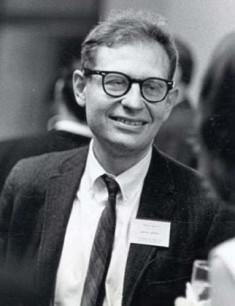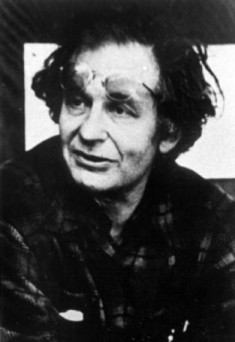| Lawrence Kohlberg | |
|---|---|
 |
|
| Psychologist | |
| Born | Oct. 25, 1927 |
| Died | Jan. 19, 1987 (at age 59) |
| Nationality | American |
Kohlberg’s revolutionary Theory of Stages of Moral Development helped establish his reputation as a brilliant thinker in the field of psychology. Studying the topic of moral development was certainly not a new pursuit as philosophers had been doing it for centuries. The subject had, for lack of a better description, had become an afterthought when Kohlberg resurrected it. In doing so, he breathed new life into the study of a very critical area of psychology.
Kohlberg’s Early Years
Lawrence Kohlberg was born on October 25, 1927, in Bronxville, NY. His parents did not have a good relationship and divorced when Kohlberg was in his early teens. The young man put a lot of work into his studies and enrolled in the Phillips Academy in Andover, Massachusetts, for his high school education.
At the end of WWII, Kohlberg joined the Merchant Marines. As part of his duties, he helped Jewish refugees escape from Romania and into Palestine. This way, the refugees could avoid persecution. These activities were not actually approved and Kohlberg ended up spending time in an internment camp in Cyprus when British forces captured him. Kohlberg eventually escaped from the internment camp and found his way back to the United States.
Continuing Education
Upon returning to the United States, Kohlberg once again continued his studies and enrolled in the University of Chicago. At the time, the passing of placement tests could allow a student to gain credit for courses. Kohlberg did so well on the tests that he was awarded his bachelor’s degree in only one year, graduating in 1948. Soon after receiving his degree, Kohlberg enrolled in a doctoral program at the university in the area of psychology. In 1958, he received his Ph.D.
Kohlberg was very much influenced by the Swiss developmental psychologist Jean Piaget. Piaget worked extensively in areas related to the moral development of children. Lawrence Kohlberg would try to build on the work that Piaget had previously performed.
Career in Academia
Kohlberg maintained a very distinguished academic career. From 1958 to 1961, he served as an assistant professor of psychology at Yale University. He went on and worked a year at the Center for Advanced Study in the Behavioral Sciences in California and then, from 1962 to 1967, he held the position of an assistant and then associate professor at the University of Chicago. In 1968, he was named Professor of Education and Social Psychology at Harvard University.
Theory of the Stages of Moral Development
Kohlberg’s early work on this theory was found in his 1958 dissertation. Of course, the theory was expanded upon in the many years following the completion of his dissertation. The theory built upon much of what Piaget had researched previously.
 The simplest way to explain the theory is that ethical behavior is born of moral reasoning and moral reasoning can be identified by six traits. Each of these stages helps respond to a moral dilemma with each growing stage being better able to offer a response.
The simplest way to explain the theory is that ethical behavior is born of moral reasoning and moral reasoning can be identified by six traits. Each of these stages helps respond to a moral dilemma with each growing stage being better able to offer a response.
The six stages are broken down into three levels: Level 1 is Pre-Conventional, Level 2 is Conventional, and Level 3 is Post-Conventional. Each level has two unique components reflecting the ladder to the consecutive stages. Level 1 centers on obedience/punishment and self-interest. Level 2 deals with conformity and authority. Level 3 centers on social contracts and universal ethics.
Experiments with these stages of moral theory were often conducted by presenting subjects with moral dilemmas and seeing how they responded to them. Later in his studies, Kohlberg felt that it might be possible to extend the stages to include moral regression.
The theories and work of Kohlberg can be examined in his published texts – Essays on Moral Development, Vols. I and II, The Psychology of Moral Development, and The Philosophy of Moral Development.
Kohlberg’s Final Years
Lawrence Kohlberg suffered depression throughout the later years of his life. It is believed this stemmed from treatment related to a parasitic infection suffered in 1971. On January 19, 1987, Kohlberg literally walked into the freezing Boston Harbor to commit suicide by drowning. His body was recovered not long after and colleagues were shocked at what had occurred.